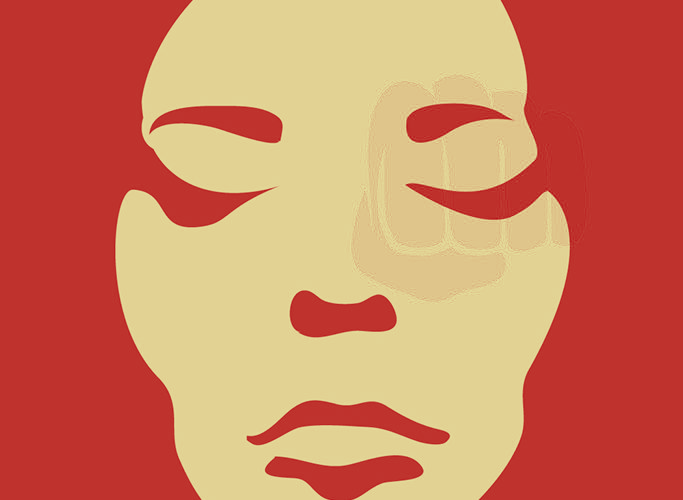

Women leaving abusive relationships suffer from more than the physical injuries and emotional shockwaves caused by their former partners. New research from Michigan State University uncovers the troubling financial situation women face due to “coerced debt” their partners place in their names, jeopardizing their chances of starting over and building a life of their own.
Coerced debt is created when an abusive partner uses coercion or fraud to access credit in their partner’s name. For example, an abuser might force or threaten the victim to take out a loan or use a credit card against her will; or, an abuser might use a victim’s information to take out a loan or credit card without her knowledge.
“Coerced debt is a particularly damaging form of intimate partner abuse. It can have severe consequences for domestic abuse survivors’ economic well-being,” said Adrienne Adams, MSU associate professor of psychology and lead author of the study, which is published in the journal, Violence Against Women. “Our research shows how prevalent this issue is, the forms it takes and how it affects victims.”
Survivors carrying coerced debt oftentimes suffer from plummeting credit scores, which means more difficulty opening new credit cards.
“Credit is necessary to access other resources. When someone puts loans in your name, for example, if that debt goes unpaid and destroys your credit, it can ruin your ability to find safe housing, get an affordable car and even find a job,” Adams said. “In this way, coerced debt can destroy a survivor’s chances to start over. It can make it harder for them to access the resources they need – and leave them with a tremendous financial obligation to pay back.”
Adams – and co-authors Angela Littwin and McKenzie Javorka – analyzed survey data about experiences with coerced debt from approximately 2,000 women who called into the National Domestic Violence Hotline.
Fifty-two percent of the women who called into the hotline experienced coerced debt. Abusers having control over financial information, credit damage, and victims’ financial dependence on their abusers were also commonly reported.

“Pilot interviews we conducted with survivors for another study suggested that there’s a pattern of abusers hiding financial information and taking out debt in their partners’ names,” Adams said. “These seem to go hand-in-hand: if you keep your partner from having access to the mail, for example, you’re able to hide fraudulent debt and continue to perpetrate the abuse.”
In this study, more than 70% of the survivors said that their partner hid financial information from them, and the researchers found that these women were 3.6 times more likely to have coerced debt. Forty-six percent of the survivors said their credit was damaged because of their abusive partners and women with coerced debt were six times more likely to have their credit damaged by an abusive partner.
The women with coerced debt were 2.5 times more likely to have reported financial dependence on their abuser than women without coerced debt, with nearly 75% of the women saying that they stayed longer in relationships with someone who was controlling because of concerns related to financially supporting themselves or their children.
Adams explained that coerced debt places an additional financial burden on survivors.
“Making payments on coerced debt cuts into the money survivors have to pay rent or put food on the table. This can put survivors in a position of having to make trade-offs – having to ask yourself, ‘do I buy groceries or pay rent?’ – to meet basic needs,” Adams said. “And if the debt went undiscovered or unpaid, the victim’s credit may be damaged, increasing the cost of accessing credit in the future.”
Married victims may pursue divorce to escape an abusive relationship, but the coerced debt follows them.
“Something that is not commonly understood is that a divorce judgement does not change the contract with the creditor.” Adams said. “This means that while a judge can order the abusive partner to pay off the coerced debt, from the creditor’s perspective the debt remains the responsibility of the person whose name the debt is in. The creditor can continue to try to collect from the victim. Getting relief from the debt hinges on the abuser following the judge’s order.”
Adams said she hopes that her findings shed light on this serious – yet understudied – form of abuse. Advocates can develop strategies to help women uncover and manage debt, as well as fight against fraudulent and coercive loans. Adams also hopes that the findings will be useful for policymakers taking steps to develop legislation to protect coerced debt victims.
Source: Materials provided by Michigan State University. Originally Written by Caroline Brooks and Adrienne Adams. Note: Content may be edited for style and length.
Journal Reference: Adams, A. E., Littwin, A. K., & Javorka, M. (2019). The Frequency, Nature, and Effects of Coerced Debt Among a National Sample of Women Seeking Help for Intimate Partner Violence. Violence Against Women. https://doi.org/10.1177/1077801219841445
Posted from my blog with SteemPress : https://www.psycupdates.com/victims-of-domestic-violence-often-stuck-with-financial-debt/
My ex committed tax fraud and I'm trying to sort it out years later. He's holding my divorce (and freedom) hostage.
I know I have some coerced debt but I don't have the money or resources to track it down. I moved so my creditors don't know where I am, but I still would rather pay it off and clear it off my karmic balance.
It's a horrible situation to be in. Thank you for writing about it.